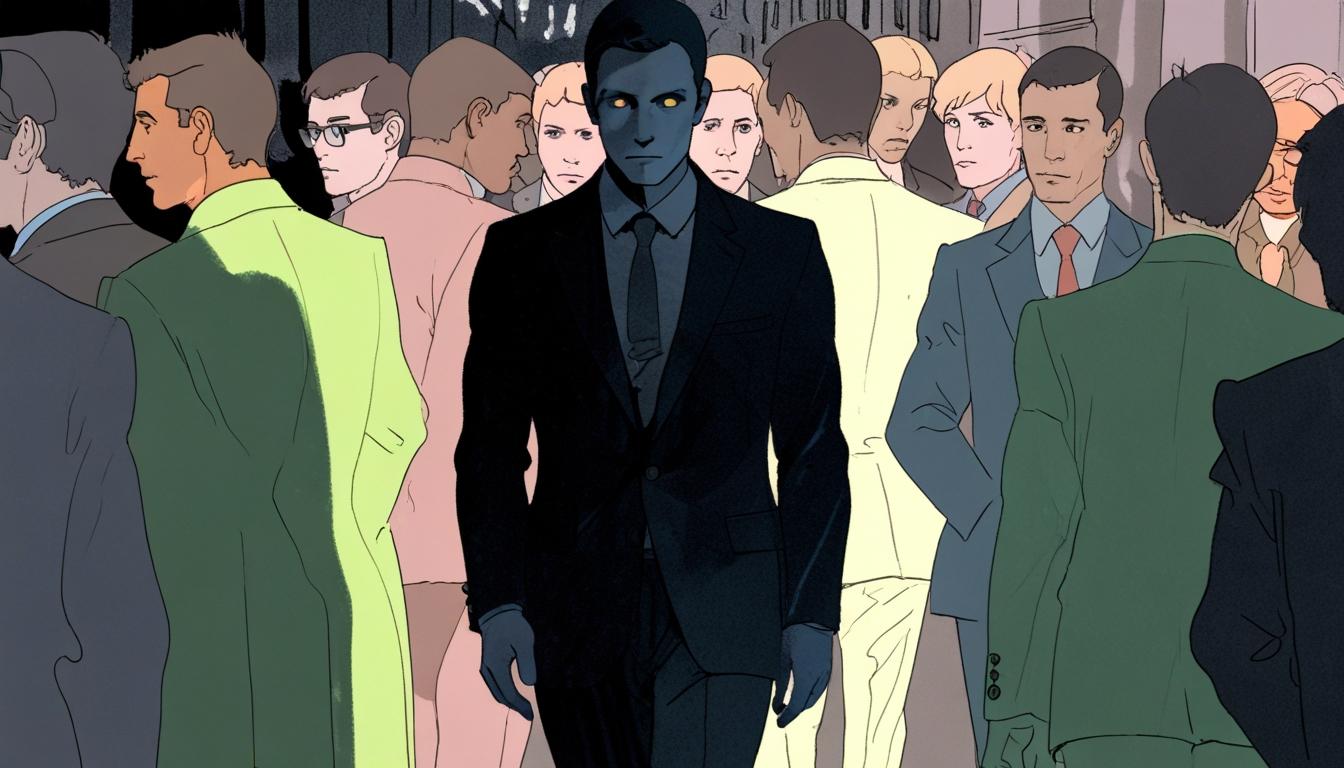In recent years, the UK has witnessed a troubling evolution in its drug crime landscape, transitioning from visible street-level gang violence to a clandestine world dominated by high-level criminal operatives. While vibrant social media portrayals by street gangs, such as those flaunting wealth and weapons, grab headlines, the real power in drug trafficking is often held by individuals operating in the shadows. These 'Mr Bigs' remain largely anonymous and live seemingly ordinary lives, all while orchestrating complex drug trafficking networks.
Recent analyses from experts highlight a significant divide within the criminal underworld—one that separates flamboyant street gangs from the more sophisticated, less ostentatious figures who dominate the higher echelons of drug trafficking. These individuals avoid the public scrutiny that often accompanies fame on platforms like YouTube or Instagram, opting instead for profiles as respectable businessmen. This ongoing trend was starkly illuminated by the major drug busts that followed the infiltration of EncroChat, an encrypted messaging service popular among organized criminals.
According to Gary Carroll of Claymore Advisory Group, this technology revelation was pivotal. It exposed criminals who had previously operated under the radar, blending into their communities while running large-scale drug operations. The sheer irony lies in the contrast between the high-profile bravado of street-level gangs and the subdued conduct of their more affluent counterparts. As Carroll articulated, “Street gangs are all about bravado... but the higher end of the market... are too smart for that.”
In a notable instance, the exploitation of EncroChat led to the arrests of over 1,200 criminals. Among them were Thomas Maher, an Irish haulage firm owner, and Richard Weild, a Liverpool car dealer. Maher was found directing a drug empire that smuggled £1.5 million worth of cocaine, while Weild boasted of a £30,000-a-week operation—all while maintaining an image of a respectable citizen. This dichotomy exposes a critical aspect of organised crime: the ability to merge normalcy with a double life of immense profit derived from illegal activities.
The psychological underpinnings that allow these individuals to weave their lives into a tapestry of legitimacy and crime have also been understudied. Dr David Holmes, a criminal psychologist, suggests that many of these crime bosses exhibit traits typical of psychopathy or subtle forms of antisocial behaviour: “These are people who may themselves have used drugs socially... who see an opportunity for quick financial gain.” Their ability to interpret their illicit activities as legitimate income streams reflects a mindset that is both opportunistic and detached from the moral implications of their actions.
Law enforcement agencies across Europe are now actively cooperating to dismantle these networks, highlighting the international dimensions of organised drug crime. High-profile arrests have taken place in countries far from the UK, as fugitive traffickers flee to evade capture. For instance, Christopher Ashurst's arrest in Amsterdam underscores the lengths to which criminals will go to evade justice and the collaborative efforts required to hold them accountable.
The advances made by law enforcement through operations like Venetic, resulting from the infiltration of EncroChat, illustrate a promising shift in tackling organised crime. Cases such as those of James Duckworth and various drug dealers across the UK reveal the potential for significant reductions in drug trafficking when authorities successfully penetrate encrypted networks, exposing intricate financial dealings underpinning the illegal drug trade.
However, the overtly aggressive and attention-seeking antics of street gangs, such as the Hellbanianz in East London, juxtapose horrifyingly with the clandestine operations of their more affluent counterparts. With the former reveling in social media fame, flaunting their activities, it highlights a chilling reality of glorifying gang culture that often overshadows the more insidious forms of organised crime operating underneath.
As the UK grapples with its multifaceted drug issues, the narrative continues to evolve, illustrating the pressing need to acknowledge and confront the hidden threats that come from the upper levels of the drug trafficking hierarchy. While the street gangs may shock and appall with their displays of violence, it is the unseen ‘Mr Bigs’ who truly orchestrate the extensive networks that ensure the drug trade continues to flourish—all while masquerading as ordinary citizens.
Reference Map
- Paragraphs 1, 2, 7
- Paragraph 5
- Paragraph 6
- Paragraph 6
- Paragraph 6
- Paragraph 5
- Paragraphs 4, 6, 8
Source: Noah Wire Services
